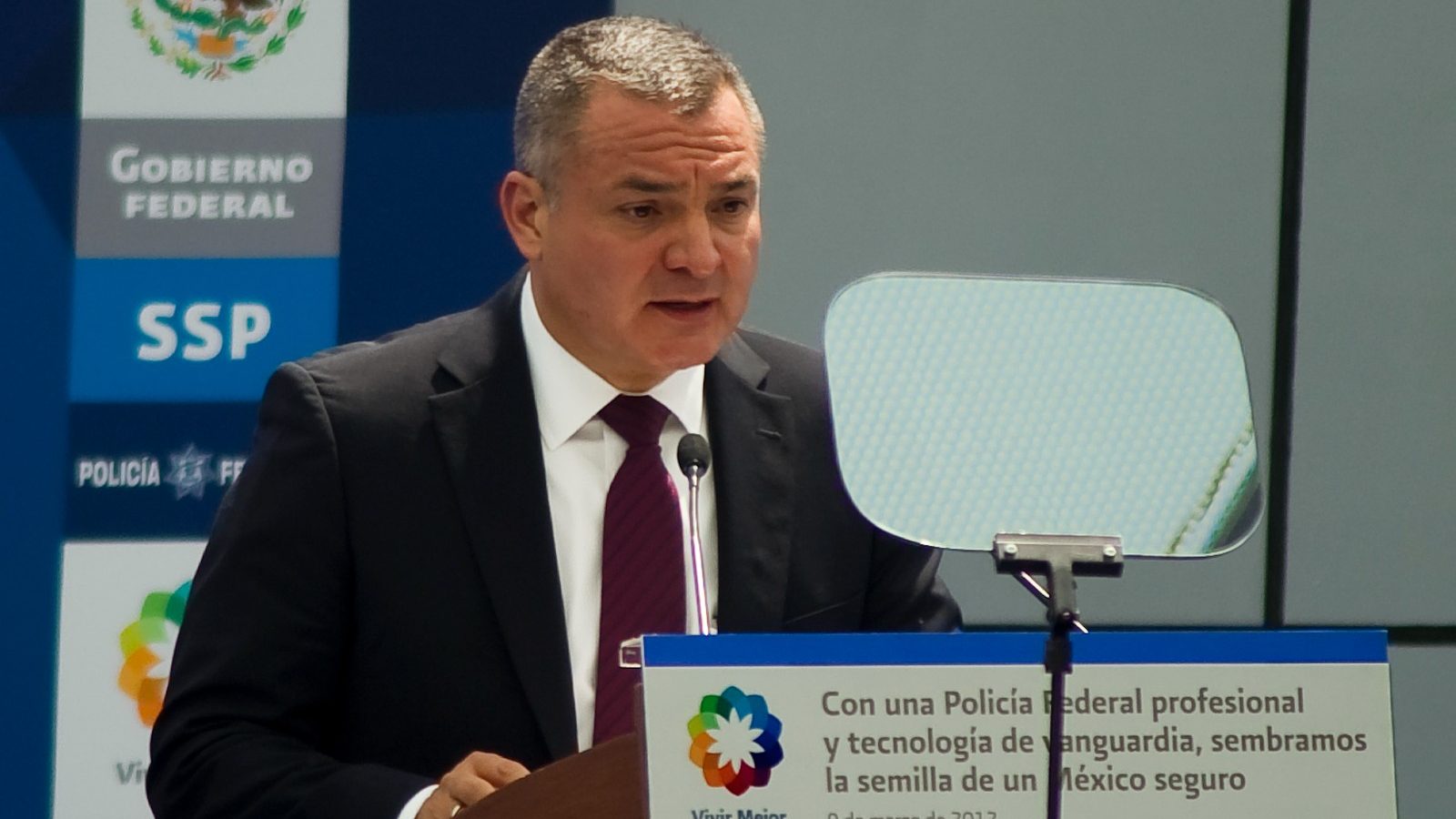"El Grande": García Luna received bribes from the Sinaloa Cartel 5:07
(CNN Spanish) ––
Genaro García Luna, convicted of crimes related to drug trafficking in the United States, was Mexico's Secretary of Public Security between 2006 and 2012, during the presidency of Felipe Calderón, and is the highest-ranking former Mexican official in face US justice on charges of drug trafficking and corruption.
The charges
García Luna, who for a decade served as head of Mexico's now dissolved Federal Investigation Agency, equivalent to the FBI, was arrested on December 9, 2019 in Dallas and charged with drug trafficking and accepting million-dollar bribes from the Sinaloa Cartel, led at that time by Joaquín "El Chapo" Guzmán.
The prosecution argued that, in exchange for money, García Luna allowed the Sinaloa Cartel to operate with impunity in Mexico and helped traffickers transport drugs safely and without the intervention of law enforcement to the United States, and that it even carried out attacks against rival cartels.
The former official faced several counts of participation in an ongoing criminal enterprise and others of conspiring to obtain, import and distribute thousands of kilograms of cocaine in the US, in addition to allegedly making false statements to US immigration officials.
García Luna has pleaded not guilty to all charges.
advertising
This Tuesday, the jury found him guilty of the five counts after 15 days of hearings and having heard the testimony of 27 witnesses.
OPINION |
Case against García Luna looks like a soap opera 2:26
The process
The trial was held in the Eastern District of New York court and was presided over by federal judge Brian Cogan, the same court and judge who oversaw the case against Joaquín "El Chapo" Guzmán.
During Guzmán's trial, García Luna's name was mentioned when some testified that they gave suitcases full of money to the former head of the Mexican Police.
Prosecutors estimate that the trial could last about eight weeks, during which various pieces of evidence and dozens of witnesses will be presented, including former members of the Sinaloa Cartel and other drug traffickers.
It is not yet clear if García Luna will speak in his own defense, but he could still avoid a lengthy trial if he decides to cut a plea deal with prosecutors in exchange for a guilty plea.
The importance of the García Luna trial.
A journalist explains it 4:12
The judge
Seven women and five men were in charge of deciding on the innocence or guilt of the former head of the Mexican Police.
By order of the judge, the jury was anonymous and partially isolated.
These 12 US citizens were chosen from 400 candidates.
Each had to answer basic questions about their identity, their ethnicity, their profession and any information that could influence the verdict.
Judge Cogan ordered these conditions at the request of the prosecution.
Cogan said the persistent violence and the broad reach of the cartel, to which García Luna has been linked by prosecutors, made it reasonably likely that jurors would fear for their safety if they were not guaranteed anonymity.
During the trial of Chapo Guzmán, the jury was also anonymous and partially isolated.
Guzmán was convicted and sentenced to life in prison in 2019, and is serving his sentence at the maximum-security federal prison in Colorado.
García Luna with then President Felipe Calderón.
Genaro Garcia Luna

